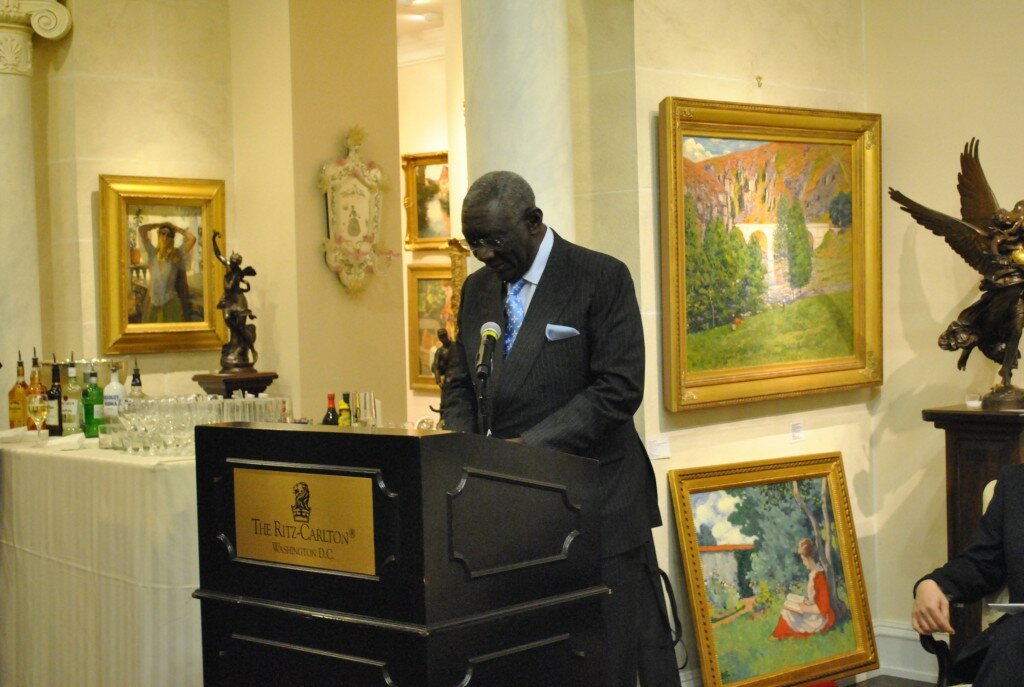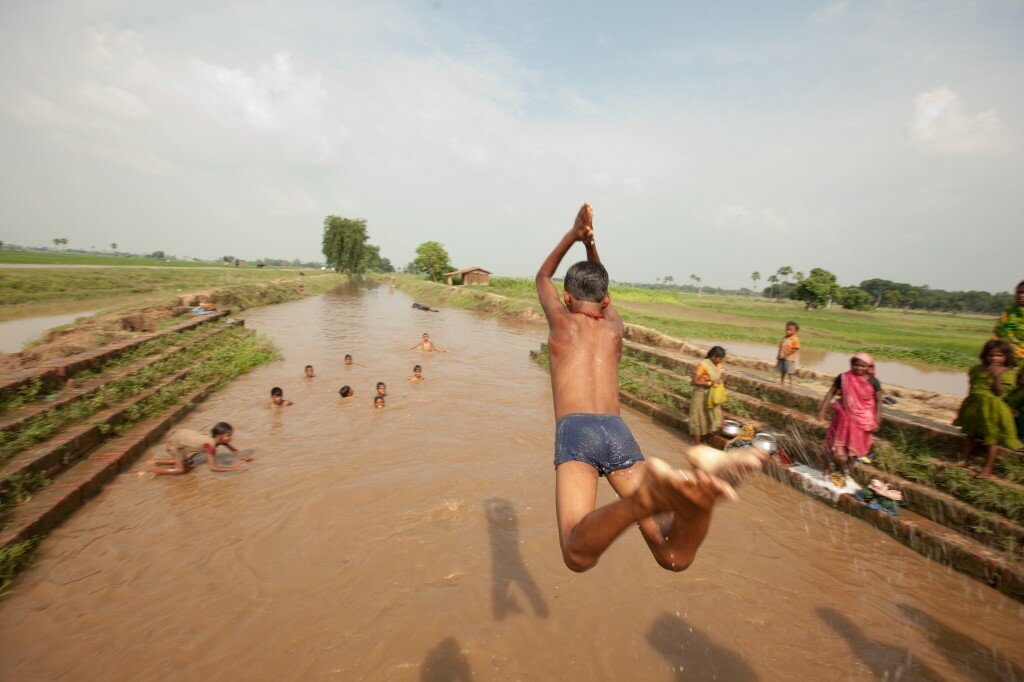
President John Kufuor presents his keynote address
Credit: Tetra Tech
This week, the former President of the Republic of Ghana and the Global Network’s Special Envoy for neglected tropical diseases (NTDs), John A. Kufuor, joined partners from the U.S. government, NGO community and private sector to discuss ways to increase access to improved water, sanitation and hygiene (WASH).
Because NTDs many are transmitted through dirty water, poor hygiene and sanitation, infinite opportunities exist for partners from the WASH and NTD communities to work together to create healthier and more prosperous communities – a point highlighted by President Kufuor during his remarks.
“I am confident that we can do much more to reach the most impoverished people around the globe by increasing WASH and health investments and coordinating our individual efforts. Sustainable and effective development rests on the future of integrated programs that take advantage of existing synergies, partnerships and shared resources.”
Further emphasizing the night’s theme of partnerships, the event was hosted by a wide range of organizations including the Global Network for Neglected Tropical Diseases/Sabin Vaccine Institute, InterAction, Tetra Tech, the Millennium Water Alliance, WaterAid and WASH Advocates. Attendees, hosts and speakers were able to chat, network and share their experiences before the featured presentations.

Participants from the event chat with President Kufuor
Global Network’s Managing Director, Neeraj Mistry, opened the event by encouraging the WASH and NTD communities to find cross-cutting points of convergence between these two sectors.
“In times of resource scarcity, we need to make the most of what we have,” he said.
Sam Worthington, President and CEO of InterAction, moderated the discussion. He also emphasized the opportunity to initiate WASH and NTD partnerships right here in D.C., and highlighted the role of InterAction as a platform for bringing people together.
Next, President John Kufuor delivered his keynote address, in which he spoke first-hand about the impact of poor WASH, Guinea worm and other NTDs on the people of Ghana.
“The pain from Guinea worm—like many other high-burden NTDs—would prevent Ghanaians from attending school, tending livestock or working in their fields for weeks at a time and in some cases, permanently. It often forced children to fall behind in their studies and adults to lose their jobs. “
However, Ghana was able to eliminate Guinea worm after promoting awareness of the disease, training WASH and health workers, and expanding access to clean water in rural areas, Kufuor explained. In addition, support from the U.S. Millennium Challenge Corporation (MCC) enabled Ghana to improve clean water and health in the country.
In closing, Kufuor emphasized the need for collaboration with an African proverb: “if you want to go fast, go alone; if you want to go far, go together. It is only together that we can create a healthy future free of poverty. “

David Baxter of Tetra Tech’s Institute of Public Private Partnerships, Apollos Nwafor of WaterAid West Africa, Jonathan Nash, the Deputy Acting Vice President of the MCC and Christian Holmes, Global Water Coordinator from USAID all presented unique perspectives regarding the power of partnerships in achieving health goals.
David Baxter highlighted Tetra Tech and the private sector perspective on forging public-private partnerships to increase access to WASH. As David explained, Tetra Tech develops innovative WASH solutions in partnership with NGOs and governments. He noted that institutional capacity building is essential to sustaining gains made from WASH and NTD efforts.
Apollos Nwafor followed with a powerful declaration that everyone everywhere should have access to WASH by 2030, and partnerships will help us get there. He also stressed the importance of public-private partnerships that are pro-poor and inclusive to those who may be otherwise excluded or marginalized.
John Nash and Chris Holmes closed the event, providing a U.S. government perspective. John noted that the MCC works with nongovernmental partners on each and every project in which they invest. Chris Holmes echoed the importance of partnerships and reinforced the need to embrace the private sector in order to accelerate WASH and NTD programs.
The presence of President Kufuor and so many dedicated WASH and NTD advocates at Wednesday night’s event was very encouraging. Growing partnerships between the NTD and WASH sectors and the public and private sectors are contributing to healthier communities across the world, and the Global Network looks forward to advancing these efforts to ensure that universal access to WASH also equates to a world without NTDs.
To view photos from the event, click .







